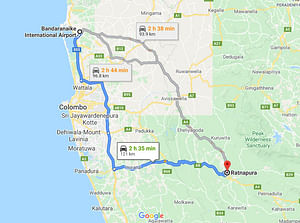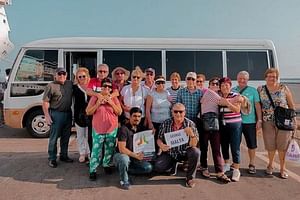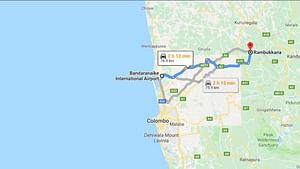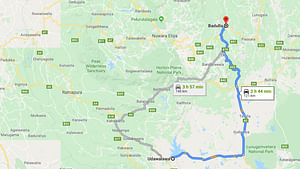For those who look for sights of lots of elephants, a safari to Udawalawe will never make you disappointed.
Renowned as a place that promises you sights of majestic elephants throughout the year, Udawalawe national park is one of the most undisturbed and pristine natural ecosystems on the planet enriched with a wealth of Sri Lankan elephants.
The huge herds of elephants with playful little ones being the prominent feature of the Udawalawe safari, the park also offer you glances at water buffalo, wild boar, spotted deer, sambur deer, jackal, samber, black-naped hare, mongooses, bandicoots, foxes, the endemic Toque Macaque and Gray Langers.
Spreading over an area of 30,821hactares the park embodies the true essence of a tropical paradise offering exciting excursions to capture the diversity of ecosystems that supports a rich variety of exotic flora and fauna.
Aside from the elephant gatherings and the sights of mammals, Udawalawe national park is a perfect getaway for bird-watchers.
Offering you an excellent ample of opportunities for spotting endemic and migrated birds, a Udawalawe safari can present you with the sighting of the Sri Lankan jungle fowl, spur fowl, green pigeon, Sri Lanka grey hornbill, Spot-billed pelican, Little cormorant, Green bee-eater, Crested tree swift and more.
Hop on a safari jeep and explore the unspoilt and untouched grace of the wilderness and enjoy glorious sights of wildlife native to Sri Lanka.
Pre-reserve your Udawalawe safari now and enjoy an exciting journey into the wild with our professional safari drivers.
Thereafter visit the Elephant Transit Home Udawalawe
Elephant Transit Home (ETH) takes care of orphaned elephant calves – until they are independent and able enough to be released back to the wild. Although, a majority of the general public enthusiastically supported this endeavor, at the inception many conservationists doubted its feasibility.
Situated in the western border of the 33,000 hectares of Udawalawe National Park, ETH is adjacent to the “Udawalawe reservoir”. The elephant calves have no boundaries in the area and have freedom to roam wherever they want. Similarly, wild elephants also visit the ETH premises. Seasonal fluctuating water level of the reservoir creates a diverse environment for both the baby elephants and wild elephants.
The Transit Home is a lively place. Feeding milk to the calves every three hours is a recurring job on all 365 days of the year. Elephant calves at ETH are fed once every three hours. ETH turns into frenzy if the feeding times are delayed; the pathetic cry and the charges of elephants for milk is agonizing to hear. Getting the orphaned elephant calves adapted to milk powder and a whole new environment requires utmost patience and care, as there is still no special milk formulae that has been introduced for elephants.
The Transit Home is a lively place. Feeding the calves with milk happens every three hours throughout the 365 days of the year.
Public viewing of the feeding is permitted daily at 9 a.m., 12 noon, 3 p.m. and 6 p.m. (You will be taken for the 12 noon session)
The tour starts at











